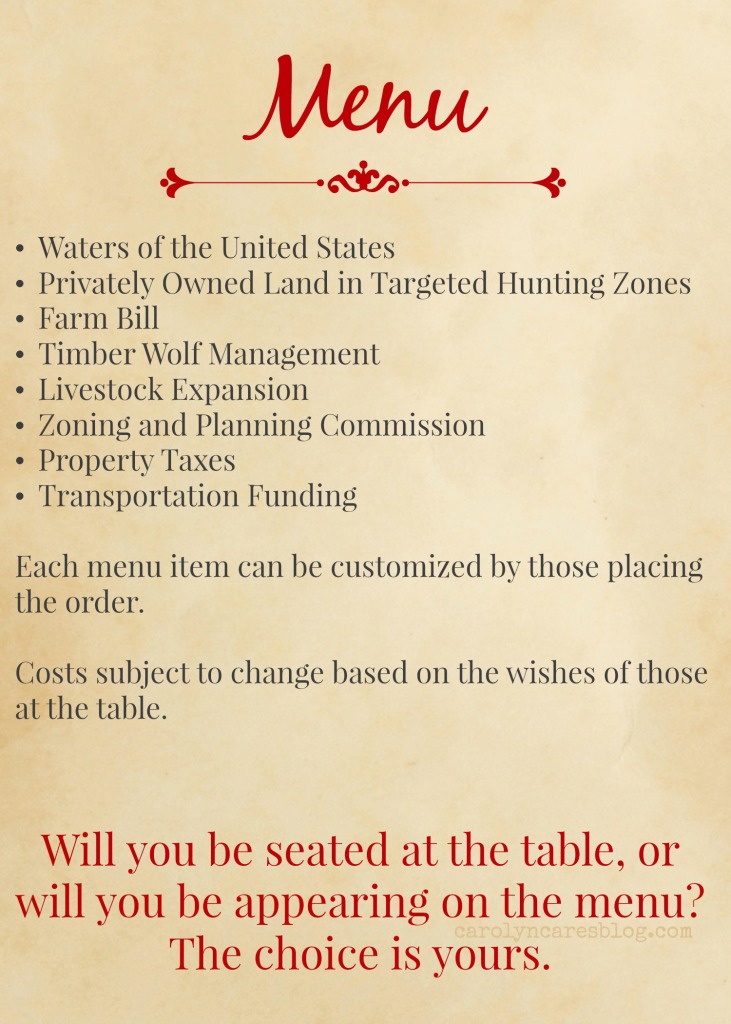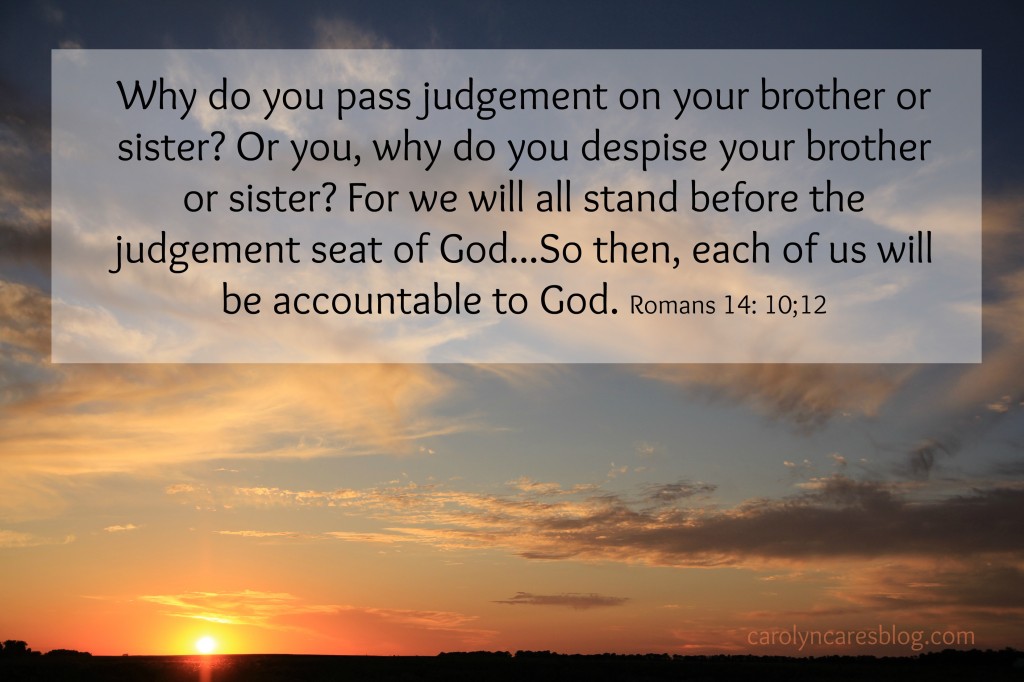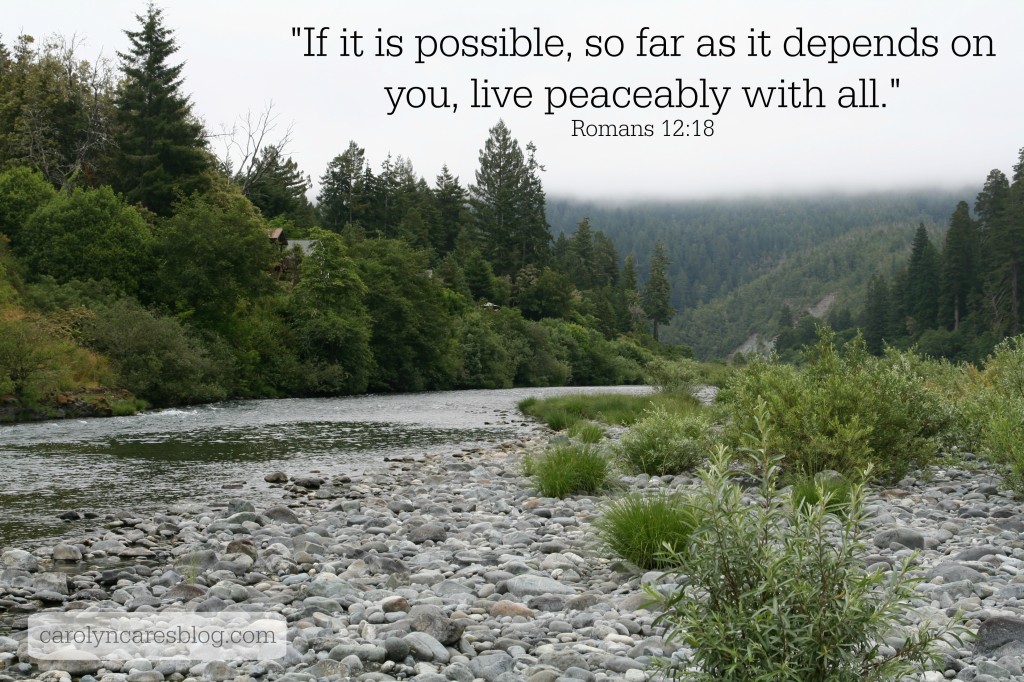How many times have you heard someone say they just don’t want to get involved, or that they belong to a farm organization so “they” will speak up for them? Maybe they feel like it’s no use…they are just one person, and their vote or opinion won’t count anyway, so they give up. Frustrating, isn’t it?
This past week, I attended the first ever Governor’s Pheasant Summit. Our area in Minnesota is pretty popular for pheasant hunting, so they met at the college that is a few miles from my place. Even though I live close to the venue, I hadn’t heard about the Summit until our Farm Bureau Director of Public Policy mentioned that he would be there. I was starting to feel as if I was being prepped for the menu.
I went online to check out the Summit details, and to go through the background information. It was clearly spelled out that this was supposed to be a discussion between hunters, farmers, policy makers, conservationists, DNR, and other stakeholders and government officials. What I saw when I walked in the door was very different. There were many state agency people – DNR, SWCD, MN DOT, BWSR, NRCS – but very few farmers. Besides the few farmers that I saw, there was a small group of cattlemen, a small group of bee keepers. With the format of the event, it was evident that the small number of farmers, ranchers, and bee keepers wouldn’t have a lot of clout…even though we represented the largest private landowners, and would be the most affected by whatever decisions came out of the Summit.
There are some lessons here.
1. We need to show up. When there is an open call for stakeholders, we need to respond. We cannot wait for “them” to represent us. “They” may represent you, but when it comes to events like the Summit, I have the same amount of votes as everyone else in the room. Every voice counts. Let me repeat that…Every voice counts.
2. We need to engage. Don’t like how things are going? We cannot afford to just walk away and hope someone else speaks up for us. In any of the areas mentioned in the graphic above, there are or have been opportunities to engage. Not sure how? Join a farm organization. It could be Farm Bureau, State Cattlemen, Farm Bureau, Corn Growers, Farm Bureau, Soybean Growers, Farm Bureau, Pork Producers, Farm Bureau, Bee Keepers, Farm Bureau… Jonathan and I are members of more than one group, giving us opportunities to engage through those different groups. Many of these groups also arrange group trips to the State Capitol and Washington DC giving you the ability to engage with your elected officials, while helping you to speak effectively to them.
3. We need to be persistent. After the Pheasant Summit concluded, I approached the Commissioner of the DNR to ask if a farmer would be a member of the group that hammers out the action plan that came out of the Summit. In our private conversation, he agreed that we need to be at the table, and we need to be able to work together. The 5 areas outlined are too broad to let the government agencies decide on the action plan without agriculture at the table. We need to be persistent and willing to be the squeaky wheel every once in a while to ensure that agriculture has a voice. We can’t take one private conversation and be satisfied that we will be heard.
4. We need to work together. There are times when every farmer and rancher needs to work together, regardless of size, methods, or farm type. A good example is the issue with the Environmental Protection Agency and their Waters of the United States rule that would essentially give them jurisdiction over all the water in the United States. Through an organized effort, and the participation of farmers and ranchers all over the United States, we are getting the attention of our elected officials, and they are responding. The Pheasant Summit is a state wide issue that affects every farmer and rancher, regardless of size or method. We need to be willing to set aside our differences for the good of the whole, there is strength in numbers.
Where do we go from here?
Get involved. It’s okay to start small. Join your county Farm Bureau. You don’t have to sit on the county board to take advantage of the opportunities for members. If you are not comfortable in front of people, at least respond to the Action Alerts when they are sent out. Participate in your Day on the Hill. Your county Farm Bureau and commodity organizations make it very easy to show up, and be effective. Head to Washington DC with Farm Bureau. You will learn a ton about Farm Bureau, the legislative process, and you will be making a difference by your very presence. Attend events like the Pheasant Summit. We need the agriculture voices to show up and help shape the recommendations that will affect us. You don’t have to stand up and address the crowds, or give a speech, or be on TV to make a difference. Just get involved at the level you are comfortable with. Help agriculture be at the table, and not on the menu.














